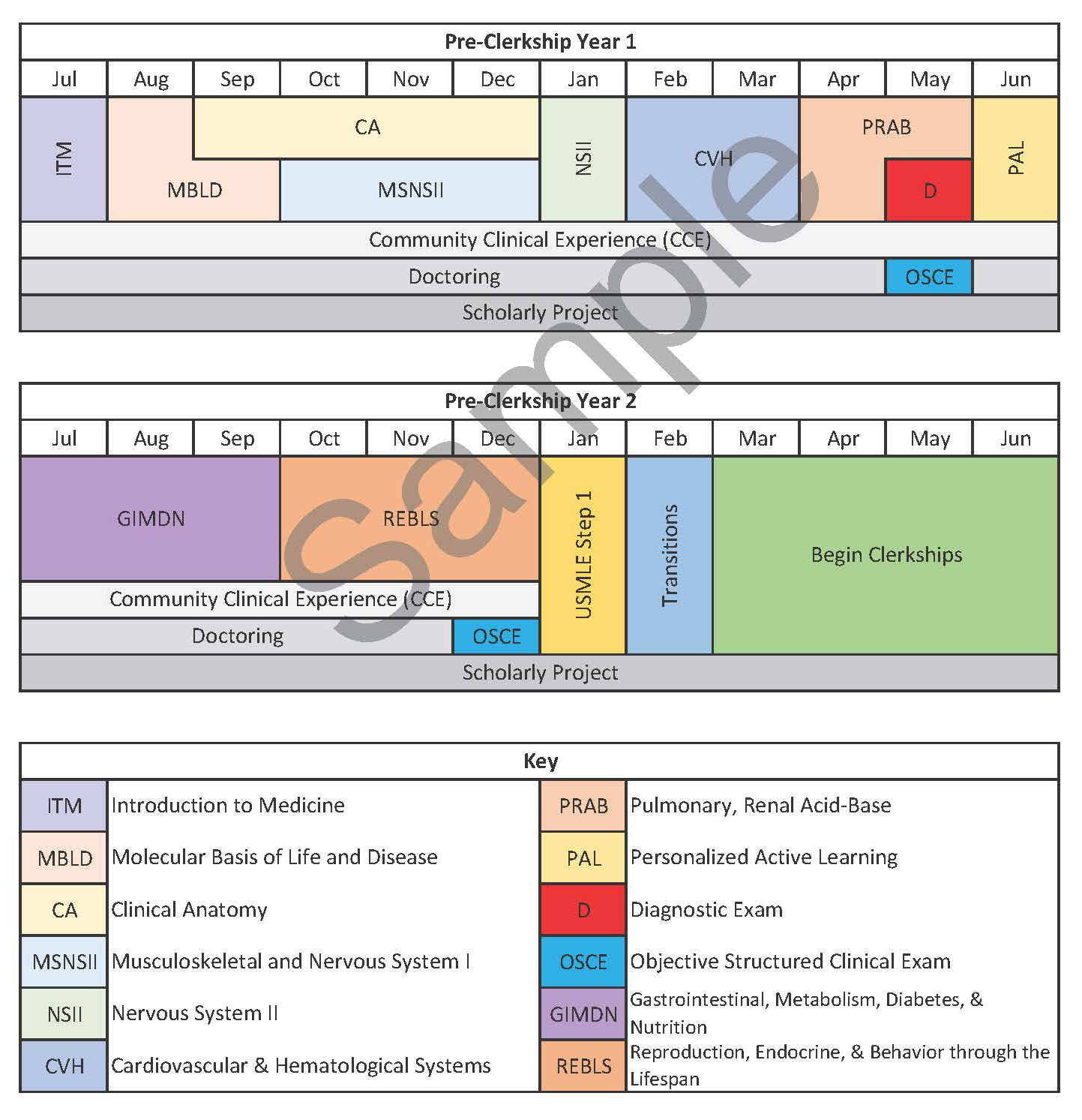Blocks – The 11 organ systems-based blocks (Years 1 and 2), along with four longitudinal courses, comprise the pre-clerkship curriculum. Each block is directed by a pair of accomplished educators: one scientist and one physician. This intentional pairing ensures that students receive current and critical instruction in the basic sciences, as well as relevant clinical application of the material in each block.
- Year 1 Blocks: Introduction to Medicine; Molecular Basis of Life and Disease; Clinical Anatomy; Musculoskeletal and Nervous System I; Nervous System II; Cardiovascular and Hematologic Systems; Pulmonary, Renal, Acid-Base; and Personalized Active Learning.
- Year 2 Blocks: Gastrointestinal, Metabolism, Diabetes and Nutritional Science; Reproduction, Endocrine and Behavior through the Lifespan and Transitions to Clerkship.
Personal and Professional Development - PPD includes clinical specialty shadowing, offers protected time for students to engage in observational clinical experiences across diverse specialties, fostering early exposure to real-world healthcare settings. PPD reinforces basic science and Doctoring course knowledge, integrates theme-related contemporary curricular content, and highlights professionalism, humanism, and communication. PPD also promotes interprofessional collaboration through team-based care observation, supports career exploration, advising, and mentorship within a cohort model, and encourages self-directed learning, reflective practice, and professional identity formation. Additionally, it provides dedicated time to support students’ personal and professional wellbeing.
Community Clinical Experience – The Community Clinical Experience course traverses the first two years of the college curriculum and is characterized by an ambulatory care preceptor hosting a student in his or her office one afternoon, approximately every other week.
Doctoring – The Doctoring course prepares the preclinical student to be a functional member of the medical care team by instilling the necessary skills for success in the clinical setting. Students will be proficient in history taking, using Patient-Centered Interviewing techniques including emotion seeking and emotion validation tools. Physical examinations will be efficient, technically correct and problem focused. Documentation skills will be developed to promote concise, precise, valid entries into the medical record. Critical thinking skills will be formed to enable the student to develop both broad and then focused differentials based on the standardized patient (SP) presentations.
Scholarly Project Year 1-4 – During the Scholarly Project course, which spans the entire four years of study, students learn about medical information literacy, life-long learning, teamwork, effective communication, research methods, evidence-based medicine approaches and ethics related to scholarly inquiry. Each of these topics will be explored in depth as the student completes an individual hypothesis-driven research project over the course of this four-year experience.
Longitudinal Curricular Themes – While each curricular unit targets specific and sometimes unique learning objectives and experiences, we have constructed a number of ways to provide seamless and cohesive content, bridging opportunities for students across the entire curriculum.
